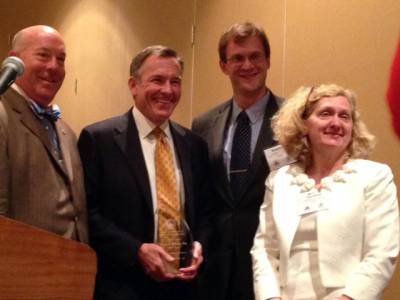The purpose of this article is to unpack one of the most recent FERC Orders on alternative energy and discuss the new market opportunities, if any, that it will open to an industry struggling to find a path for broader customer engagement on renewables and demand reduction products. The Federal Energy Regulatory Commission (“FERC”) latest order has changed the rules for who can participate in the wholesale power markets. This latest FERC move will allow renewable energy producers as small as homeowners with a roof covered in solar panels or an electric vehicle in the garage, to participate in wholesale markets through aggregation with other smaller scale resources, despite being located on the distribution system. Under prior rules, most of these resources were too small to participate in the wholesale markets. However, with its Order No. 2222, issued September 18, 2020, FERC changed the opportunities for these smaller users by permitting distributed energy resources (“DER”) to participate as part of an aggregation in wholesale markets operated by Regional Transmission Organizations (“RTO”) and Independent System Operators (“ISO”). Despite, efforts to alter Order 2222 by Order 2222-A on March 18, 2021, and Order 2222-B on June 17, 2021, Order 2222 remains largely unchanged.
HMS Legal Blog
A new year is upon us; and while that may facially seem like a good thing, the continued uncertainty has people anxious. I feel challenged to consider what issues, concerns, and hot topics are likely to rise the surface in the next twelve months. With the pandemic still at the top of the news queue most of the time, and with many people still working from home, if they are working at all, picking the possible hot-button issues is no easy task. The trick, if there is one, is to narrow down the range of probable outcomes – in this case, to things that were begun and not finished. What follows are my predictions for those industries regulated by public utility commissions – and the Pennsylvania Public Utility Commission (“PaPUC”) in particular.
Yesterday the U.S. Supreme Court in a majority decision reversed the D.C. Circuit Court of Appeals’ decision and determined that a regional transmission organization’s (RTO) demand response program compensation comes under FERC’s jurisdiction. A demand response program is when, during high electricity demand, customers of electricity are paid not to use electricity. These demand response programs serve to lower electricity prices and increase the reliability of the electric grid. Center to the present issue is FERC’s issuance of Order No. 745 (Order 745). Order 745 requires market operators to pay the same price to demand response providers for conserving energy as to the generators for making energy. The D.C. Circuit Court held that FERC lacked authority to issue the order because Order 745 would directly regulate retail electricity rates. The D.C. Circuit Court also held that FERC’s demand response compensation scheme was arbitrary and capricious under the Administrative Procedure Act. The U.S. Supreme Court disagreed.

On May 15, 2014, during the Pennsylvania Bar Association’s annual meeting, the PBA’s Administrative Law Section presented the James S. Bowman Award to Kevin J. McKeon of Hawke McKeon & Sniscak, LLP. The award honors a lawyer who is making a significant impact on the practice of administrative law and who is demonstrating leadership in mentoring administrative law practitioners. McKeon regularly represents clients before the Pennsylvania Public Utility Commission and the Federal Energy Regulatory Commission, and also serves as lead counsel on significant cases before Pennsylvania’s appellate courts and the federal circuit courts of appeal. He serves on the Pennsylvania Supreme Court’s Appellate Court Procedural Rules Committee, is a co-author of Pennsylvania Appellate Practice, and is a frequent lecturer on topics in administrative law and appellate procedure. The award is named for the late Honorable James S. Bowman, the first President Judge of the Commonwealth Court of Pennsylvania, whose comprehensive knowledge of administrative law, government law and appellate procedure was widely recognized and respected.
